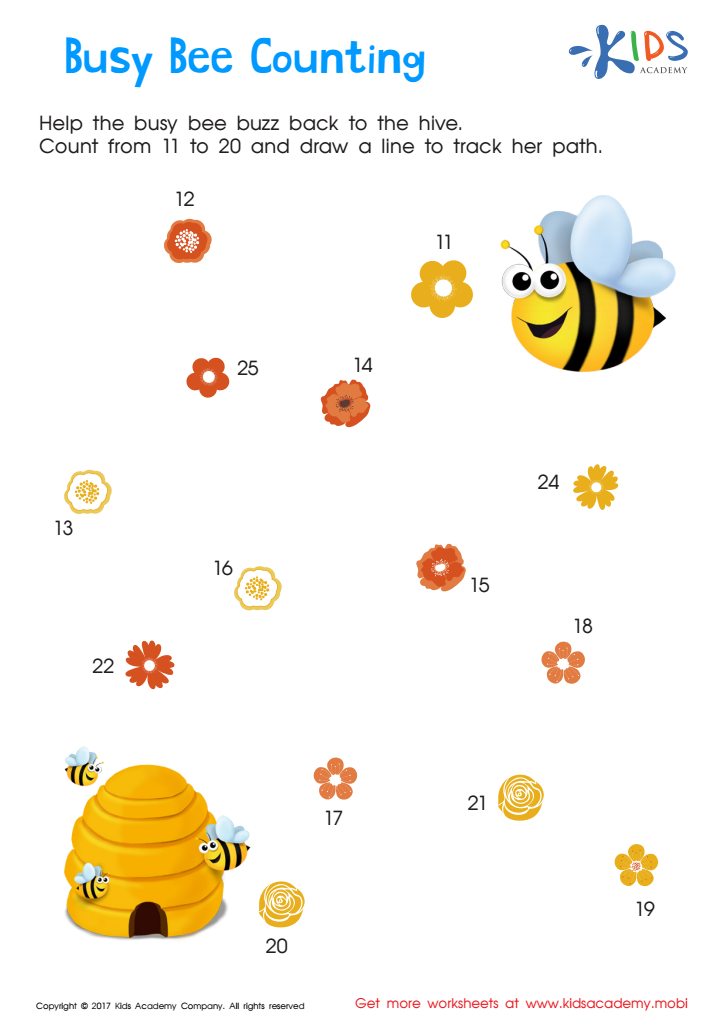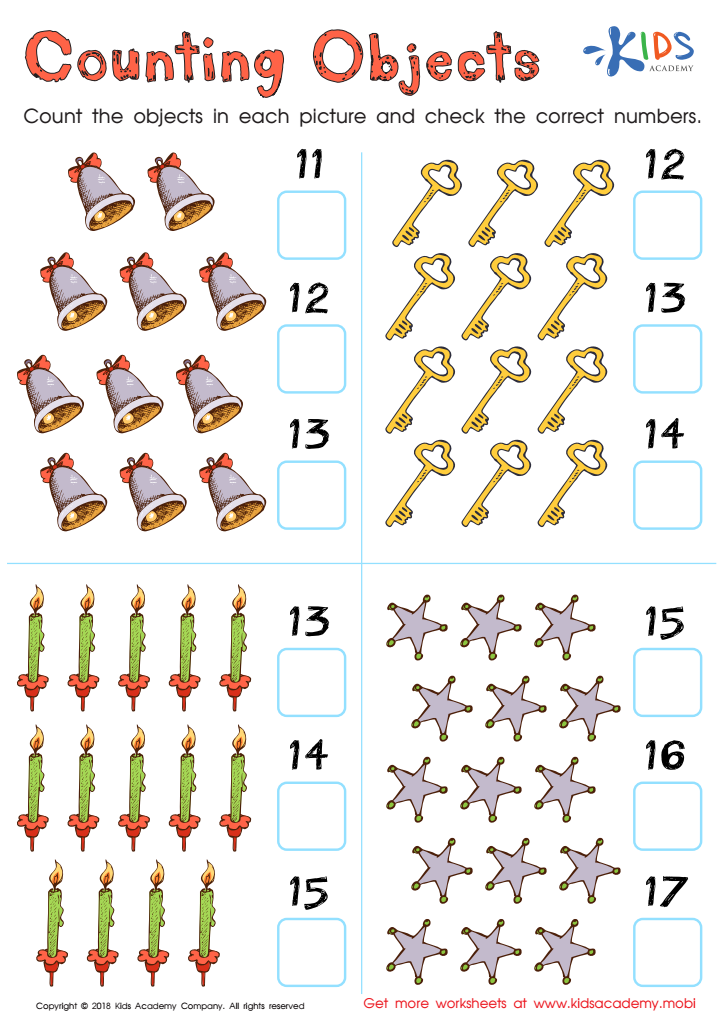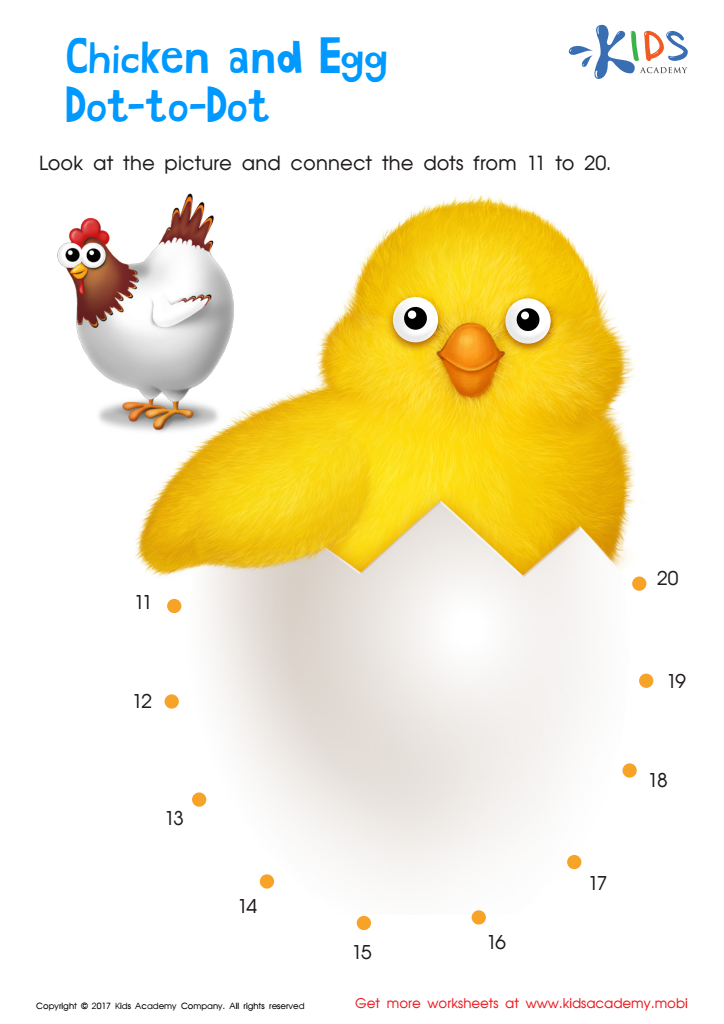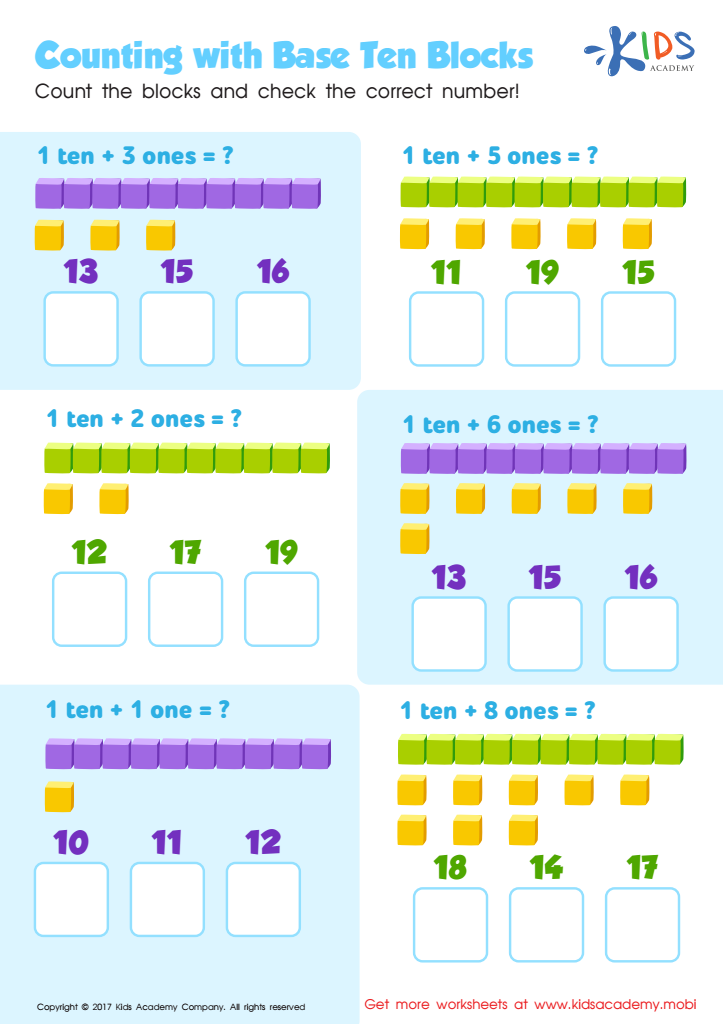Counting practice Numbers 11–20 Worksheets for 6-Year-Olds
4 filtered results
-
From - To
Our "Counting Practice Numbers 11–20 Worksheets for 6-Year-Olds" are perfect for helping young learners develop essential counting skills. These engaging, printable worksheets focus on mastering numbers 11–20 through fun activities and exercises, tailored to keep kids entertained while promoting important numerical proficiency. As your child works through these sheets, they’ll build a solid foundation in counting, number recognition, and sequencing, crucial for early math success. Designed with vibrant visuals and age-appropriate tasks, these worksheets ensure that your child enjoys learning and stays motivated. Keep your little one excited about numbers with our expertly crafted resources!


Ordering 11–20: Busy Bee Counting Worksheet


Counting Numbers Worksheet For Kindergarten


Ordering 11–20: Chicken & Egg Dot–to–dot Worksheet


Counting with Base Ten Blocks Worksheet
Understanding and practicing counting from 11 to 20 is crucial for 6-year-olds as it builds foundational math skills. At this developmental stage, children are beginning to grasp the concepts of number sequences and place value. By mastering counting within this range, they learn the critical concept of "teen" numbers, which are often more challenging due to their non-predictive naming patterns compared to numbers 1-10.
Counting practice aids in developing number sense, an essential skill that helps children make sense of numbers and their relationships. This early proficiency in counting prepares them for more complex mathematical concepts, such as addition, subtraction, and eventually multiplication and division. For example, understanding that 12 is 10 plus 2 sets the stage for comprehending larger numbers and operating within a number system.
Furthermore, consistent practice in counting enhances cognitive development and attention to detail, enhancing memory and recall abilities. It also fosters confidence and a positive attitude towards math, which is crucial as attitudes formed at an early age towards subjects often persist.
Therefore, parents and teachers should emphasize counting practice from 11 to 20. By incorporating engaging activities that promote counting, such as games, songs, or hands-on manipulatives, children can achieve mathematical fluency and be better equipped for future academic success.
 Assign to My Students
Assign to My Students














